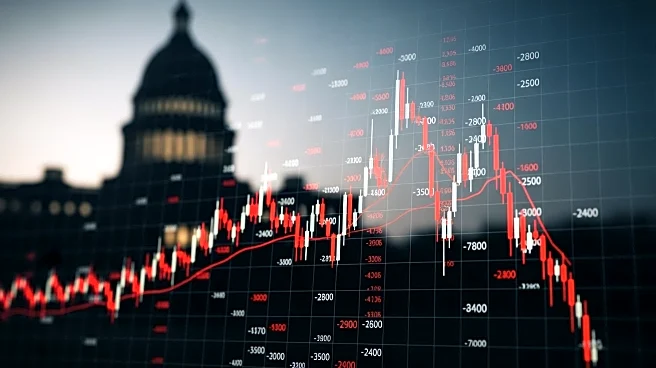What's Happening?
A recent poll conducted by Economist/YouGov indicates that 57% of Americans believe the U.S. economy is worsening, marking the highest level of economic pessimism in over a year. This sentiment coincides
with a federal government shutdown, inflation concerns, and partisan divides. The poll surveyed 1,622 individuals between October 10 and October 13, with a margin of error of 3.5%. Treasury Secretary Scott Bessent has highlighted the shutdown's impact on federal workers and military pay, stating it is affecting the real economy and people's lives. Analysts suggest that this negative sentiment could influence consumer confidence, policy decisions, and political outcomes as the 2026 midterm elections approach.
Why It's Important?
The growing pessimism about the U.S. economy could have significant implications for consumer behavior and political dynamics. As public confidence wanes, spending may decrease, potentially slowing economic growth further. The ongoing government shutdown exacerbates these concerns, particularly affecting low- and middle-income Americans. Additionally, the trade war with China has increased market uncertainty, impacting stock prices and commodity values. The Federal Reserve's recent rate cuts aim to support the job market, but continued layoffs could limit the benefits for consumers. The economic sentiment could play a crucial role in shaping the political landscape ahead of the midterm elections.
What's Next?
The continuation of the government shutdown without resolution could deepen public pessimism, particularly among economically vulnerable groups. The Federal Reserve's rate-cutting cycle may offer some relief, but its effectiveness depends on job market stability. Political leaders may face increased pressure to address economic concerns and resolve the shutdown to restore public confidence. The trade war with China remains a critical factor, with potential policy shifts impacting market stability. As the 2026 midterm elections approach, economic sentiment will likely influence voter priorities and political strategies.










